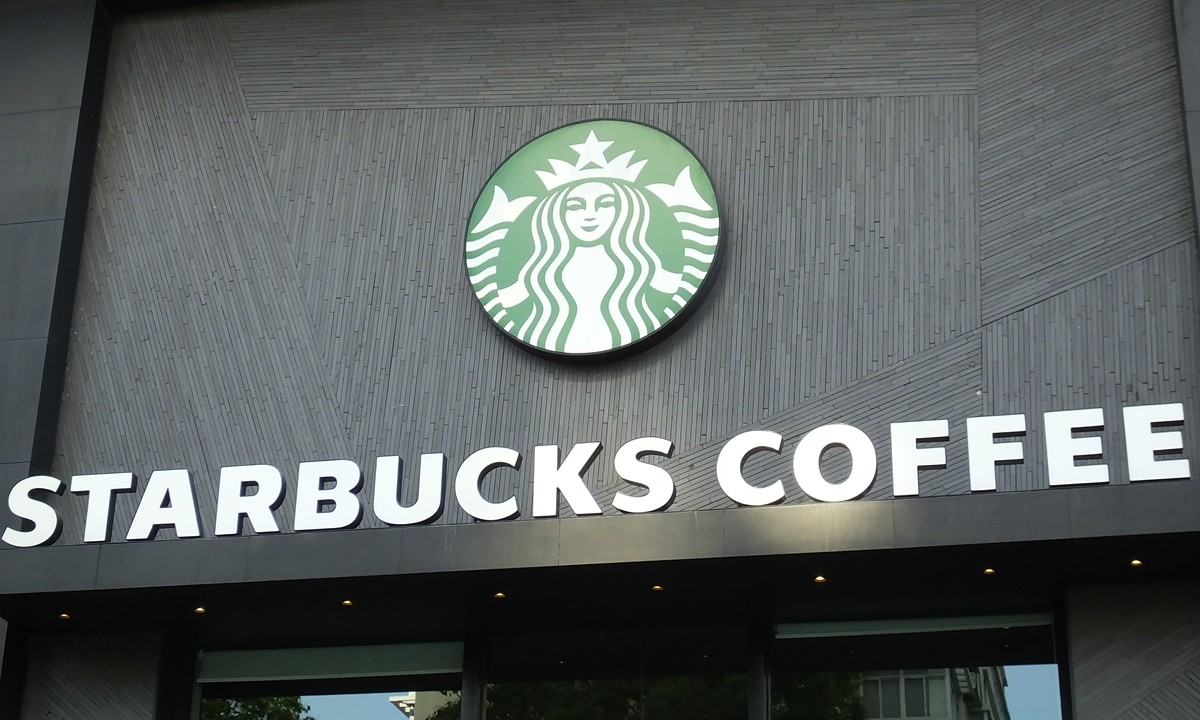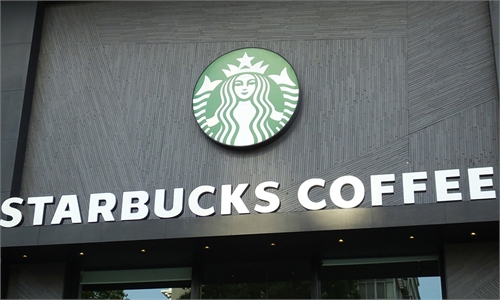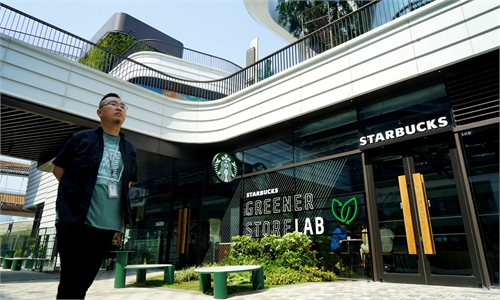
Photo: VCG
On Wednesday, without any official announcement, consumers found that Starbucks had increased the prices of various drinks by 1 yuan ($0.16) to 2 yuan. Starbucks (China) acknowledged the rise, and explained that it was based on a comprehensive consideration of various factors such as operating costs.
Luckin Coffee also raised prices. Media reports said that from December last year, prices in hundreds of stores have increased by about 3 yuan, with the increase blamed on operating costs such as rent, manpower and raw materials.
Canadian coffee brand Tims, which entered the Chinese market in February 2019, also raised its prices. Tims customer service said that it did raise the price of a small number of products, which was a decision made after comprehensive consideration of the current operating conditions.
The price of coffee beans, the main raw material for coffee, has risen sharply over the past year. The price of high-quality Arabica beans has more than doubled in the past year due to dry weather in top producer Brazil, reduced production in Vietnam, weak supply chains and soaring freight costs.
In addition to raw materials, high labor costs are also an important factor. Starbucks CEO Kevin Johnson recently stated that under the influence of the epidemic, there has been a "staff gap" in some stores.
In order to retain staff, Starbucks China announced in October 2021 that all full-time store employees will enjoy 14 months of salary for the first time, covering nearly 40,000 people. In addition, Starbucks China has also upgraded employee welfare, which also increased the company's business costs.
On February 1, Starbucks disclosed its financial results for the first quarter of fiscal 2022, showing that its revenue rose 19 percent to $8.05 billion, and its net profit was $816 million, up from $622 million in the same period last year. However, sales in the Chinese market fell by 14 percent in the quarter. As of January 2, 2022, the number of Starbucks stores in China was 5,557.
Johnson said in a conference call that during the quarter, Starbucks store sales rose 13 percent globally and by 18 percent in North America, partly due to higher prices. He expects prices to continue to rise for some products in the coming months to counter a profit squeeze from inflation and coronavirus-related labor market issues.
Luckin Coffee reported a network of 5,671 stores in the third quarter of 2021, higher than Starbucks' latest disclosure.
Li Wei, a professor from Nanjing Agricultural University, predicted that due to the global epidemic, the import and export trade prices of raw materials such as coffee and dairy products will not drop in the short term, and the prices of coffee drinks and dairy products may continue to rise in the future, according to Shanghai Securities Journal on Friday.


